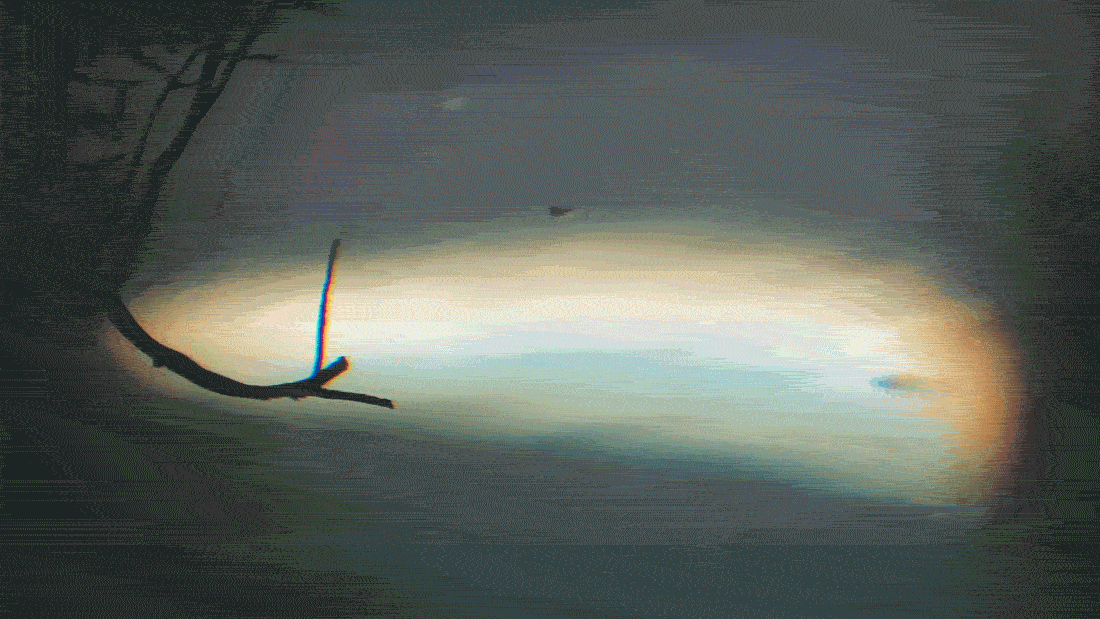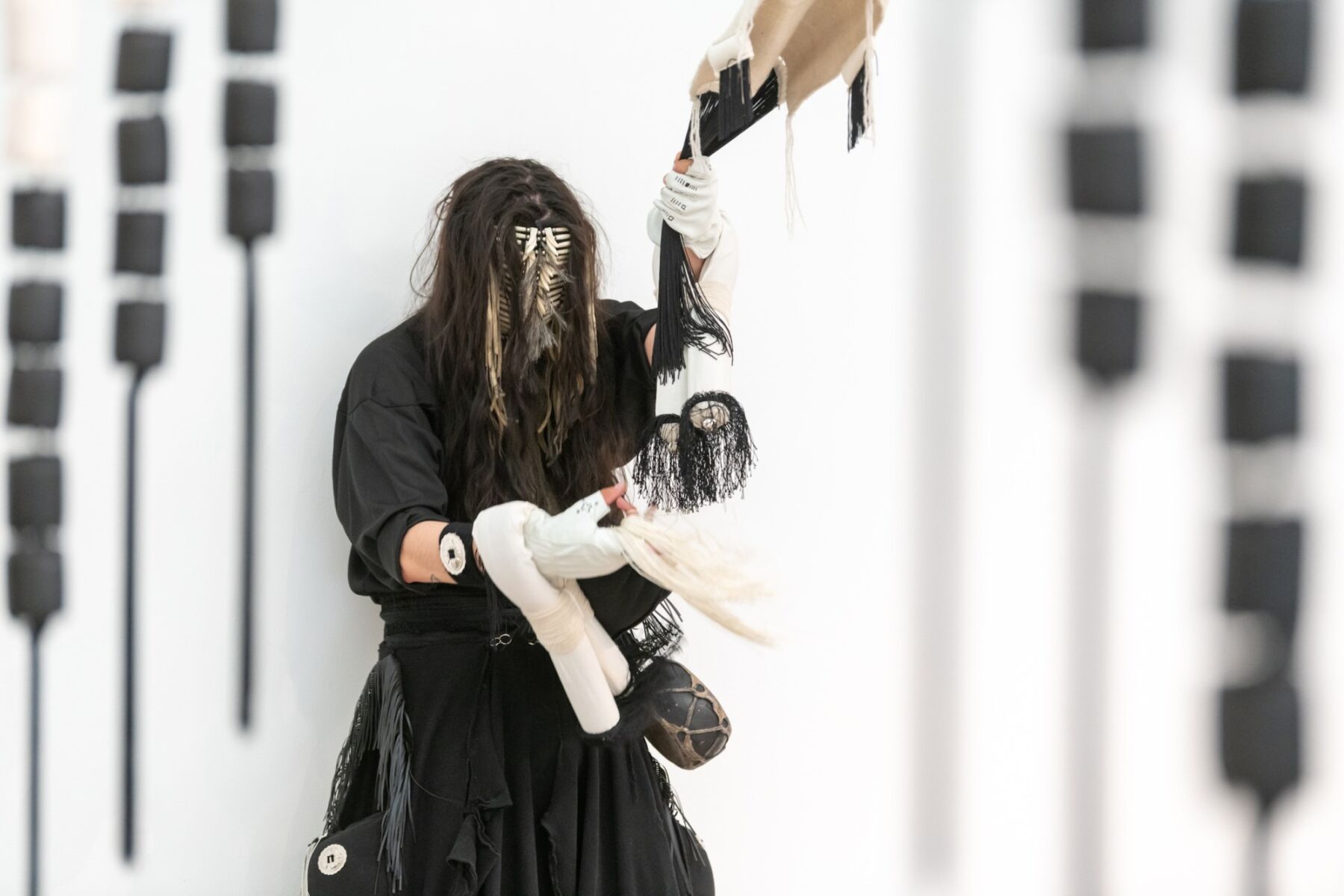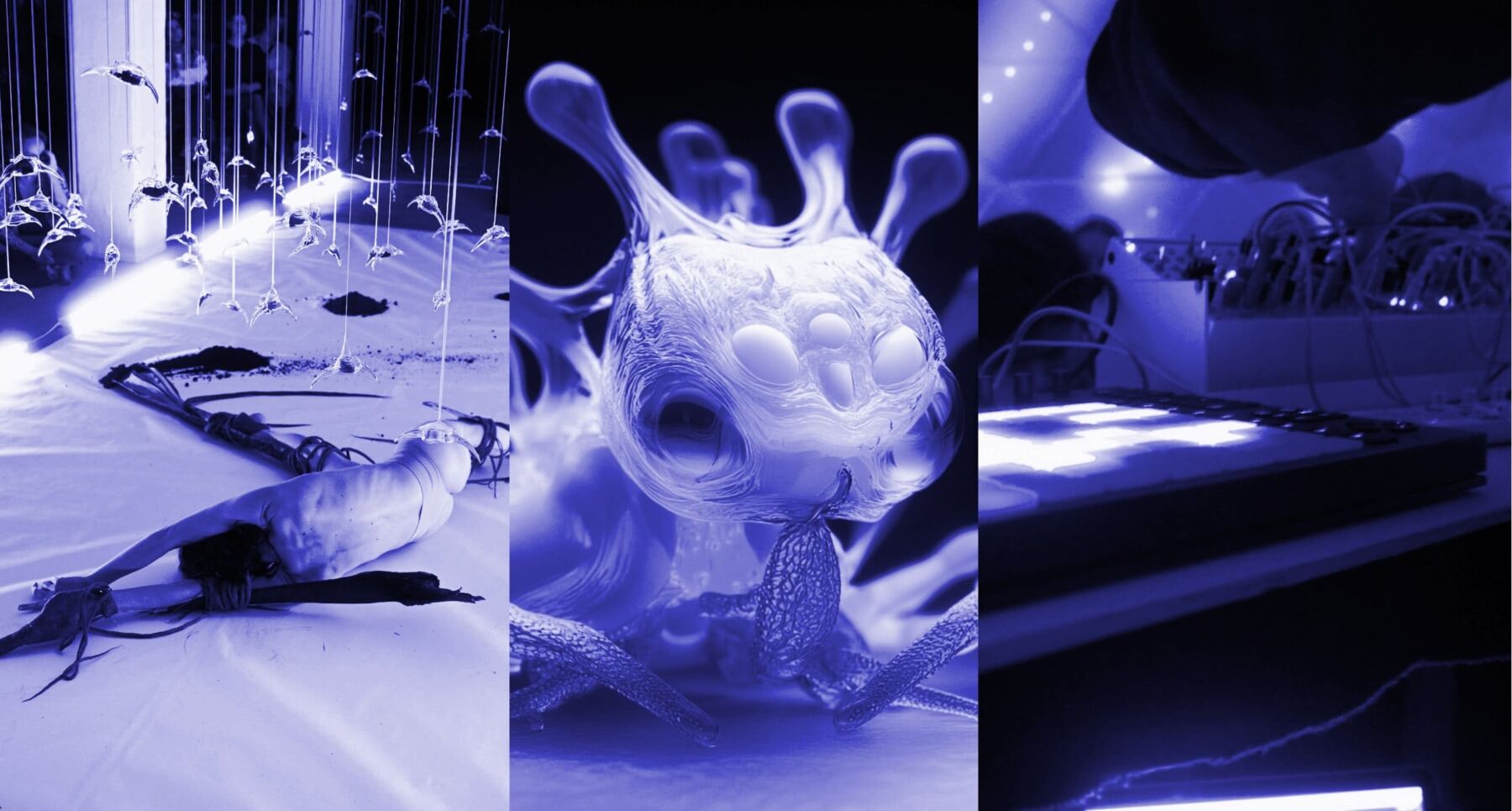Interview by Heather Sparks
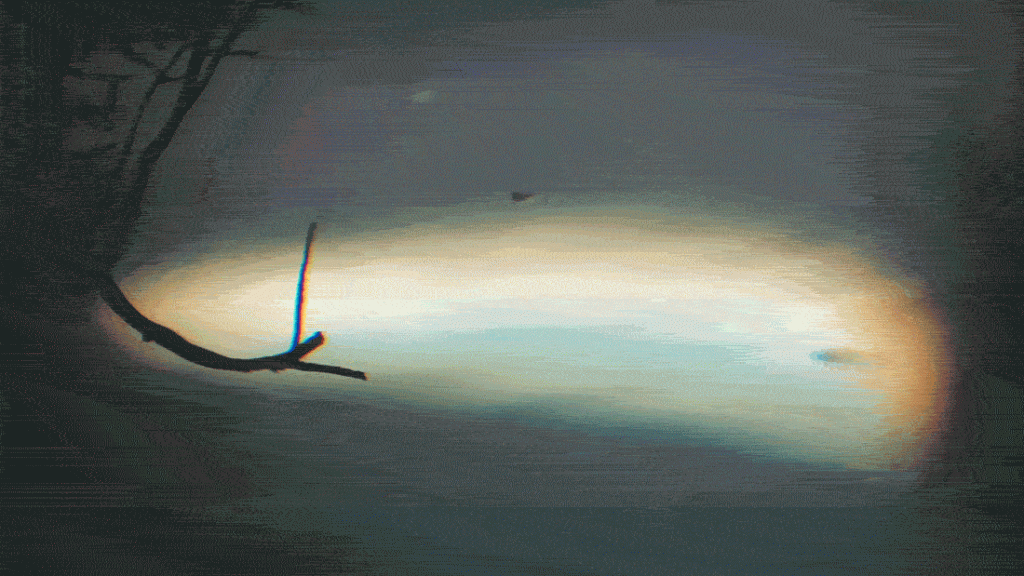
It’s hard to ignore the stories and statistics; our human reign over the Earth is coming to a sputtering end. We’re dragging our climate, our natural resources and ourselves over a cliff—with a carbon-laced noose no less. If you think these types of depressive, hope-starved metaphors are inevitabilities at this point, you may want to tune into the work that comes out of the Otherwise conference, an event meant to turn its participants away from the all-too-familiar soot-covered dystopias and prepare instead for a newer, brighter, sustainable future.
OTHERWISE founders, environmental designer Michaela Büsse and artist Benjamin Burger, will bring together a crowd of fifty participants from around the world to Zurich on March 1. For three days, they will experience lots of positive discourse and programming that seems especially suited for the city known as the birthplace of Dada: A cross-species survival dinner, synesthesia training and walks with a few four-legged friends are all on the schedule.
While these activities might seem irrelevant to the serious work of saving the planet, Büsse and Burger have seen time and again that new experiences alter people’s mindsets, which is the first necessary step in shaping better tomorrows. By helping Otherwise participants explore ambiguities together and bond in decidedly different ways, they plan on creating a future that is formed out hope, not horror, frisson not fear.
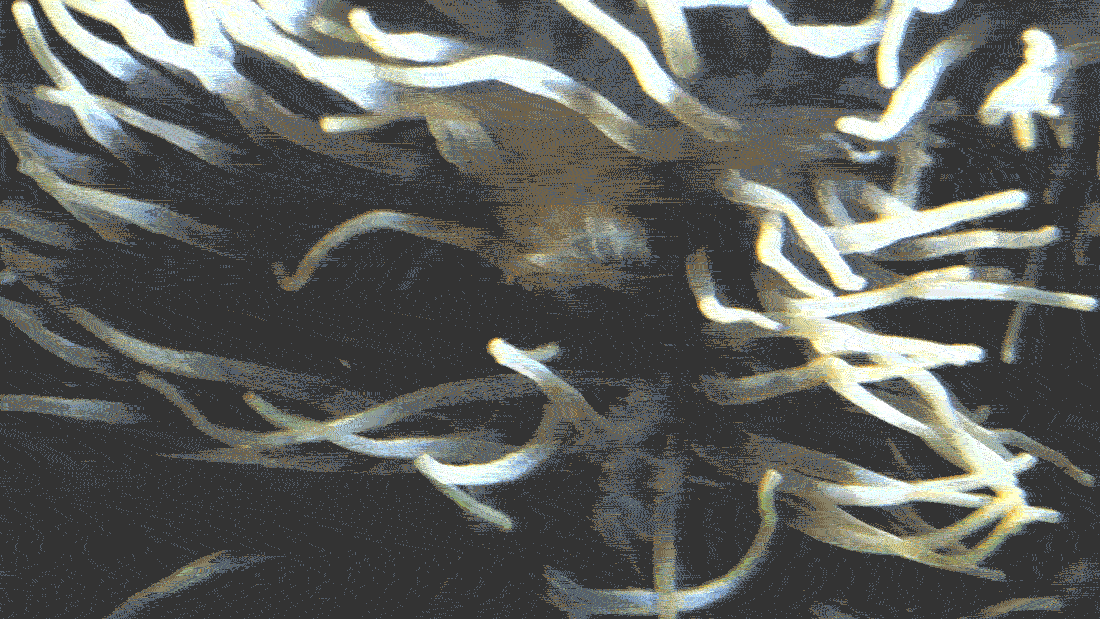
For those that are not familiar with your work, could you tell us a little bit about your background and how H0 was incepted?
Michaela: My background is in media and design studies. At the moment, I’m pursuing my PhD research at the Academy of Arts and Design in Basel, Switzerland, where I focus on infrastructures and materialities of the designed environment. Ben and I studied in the same master’s programme here in Zurich. However, it took some years until our paths crossed. We realised we are both interested in experimental formats of knowledge and experience production.
Benjamin: I mainly work as a performance artist and director. I founded the performance production EXTRALEBEN in which I investigate different strategies of immersive or engaging storytelling blending the disciplines of media art, installation, dance and theater.
Up until recently, I was trying to map the blurry terrain that spans utopia and dystopia. However, during our last project, “0”, I realised that the construction and deconstruction of utopian or dystopian narratives are not sufficient as a tool for empowerment. On the contrary, those narratives seem to reproduce a desire for certainty and affirmation. I think we could overcome our current stasis if we call to mind and embrace the vulnerability and instability of what it means to be human.
Michaela: Our ambition to address the gap between knowing that certain lifestyles are not sustainable and acting upon this knowledge brought us to think about a format that could facilitate this bridging. We founded H0 – Institute for Metamorphosis to emphasise the transformation that is needed, and by this, we mean the transformation of us humans and the way we see ourselves in relation to the world. H0 is a long-term endeavour and, OTHERWISE, our first offspring.
The idea behind the institute is to confront the depressing null hypothesis (H0) that we are doomed with a bunch of working hypotheses (h1,…, hn). Not just one but many, to discover the spectrum of alternatives, possibilities and speculations and to re-interpret the alleged end-point as a starting point, a potential for metamorphosis. Very quickly, we realised that this can’t be, shouldn’t be done by a single-minded author, so we initiated OTHERWISE – a festival-as-research, as we call it, where every participant is a collaborator.
What are the biggest challenges you faced in the development of H0?
Benjamin: There are several. As usual, time and money are the key stressors for us. We have several different projects running in parallel, and organising a festival is a huge undertaking. Luckily, we found great collaborators and with the performance art institution Gessnerallee Zürich a strong partner who supports the idea. The overall positive feedback reassures us that it’s worth the effort.
Funding is another problematic factor, especially if you come up with a format that doesn’t fit any category of the funding bodies. We are running on a very tight budget because we made some decisions that are unpopular but, in our view, were necessary in order to fulfil our vision of an inclusive, open-ended and non-commercial space for exploration. Bridging politics and ideas are hard, and we struggle a lot with decisions to cut off certain costs in favour of others.
What does H0 want to bring to the audience that interacts with the festival?
Michaela: We see OTHERWISE as an open-ended experiment. Our hope is that it will only be the starting point for a long-term collaboration with everyone involved to rethink not just our research or practices but everyday life. When Ben and I started to think about the kind of projects we would like to do together, it became clear very quickly that if we want to make a meaningful contribution, we have to open up our horizons and even question our practices.
Hopefully, the participants (including us) will make odd, ambiguous and sometimes provoking experiences. A festival where one has to be engaged from day 1 to 3 might be challenging, and some won’t feel comfortable with the meditations or movement sessions. Others might feel impatient when asked to observe the colour and structure of the food before eating or to talk to a random stone they find next to the location. But those moments of discomfort will be the most important ones and hopefully leave a trace with each and every one. We believe that these apparently naive outer stimulations are essential to foster an inner transformation.
What makes H0 different from other festivals that are bringing as well together performance, technology and digital culture?
Michaela: I attended a lot of academic and non-academic gatherings that address the same topics as we do. Some are better, some worse. But they all leave me untouched because I feel it’s more about rhetoric than action. There seems to be a sadomasochistic relationship between catastrophic narratives and the great appeal they have to an audience. When the event is over, everyone goes back home, back to business. To me, it feels like the times of objective observations, or the illusion of it, are over, and we should recognise, face and leverage our subjective entanglements and situated bits of knowledge and not pretend anymore that these are two different realms.
But such a change will not happen overnight. With OTHERWISE, we want to experiment with what a non-hierarchical, collaborative and embodied research practice could look like. We hope that everyone involved will leave the festival with lots of insights and learnings about themselves and their environment and a desire to continue the journey.
Benjamin: To challenge our perceived supremacy as a species and to replace this paradigm with openness and porosity is at the heart of the festival. We oppose the notion of our culture (also art culture) as the conservation and accumulation of habits, practices and tools that aim to shape and affirm our identity by pretending to the stability in our existence. The truth is: the human condition never was stable. H0 – Institute of Metamorphosis and OTHERWISE is an invitation to search for the non-identifiable. I like to fantasise about us as an organism that is shapeshifting, always transforming with every appearance always just being an intermediate body.
Could you guide us a bit through the programme for this year’s edition? What was your main idea/concept behind the selection/curation?
Benjamin: Our guiding curatorial principle was to look for strategies for survival, glimmers of hope, in whatever possible manifestation. OTHERWISE – the title of the festival – describes both the search for the yet non-identified, but also the realisation that this is all we are left with. What’s left otherwise? Another guideline was to include as many senses and voices as possible. All our sessions are participatory and rather experimental, ranging from dog walks to meditation to fiction re-writing, earth sound listening and mindful eating.
In Marit Mihklepp’s session Talking Stones, the participants will learn about their entanglements with geology and the discrepancy between human time and stone time. Michail Rybakov’s choreographic workshop will question our habitual positioning and invite us to move differently, as critters, as terrestrial beings. And how would a different approach to movement influence our thinking? Aiina Aïon’s meditation will guide the participants to overcome binary notions of human and nature and re-assess their being in nature.
We will also have a range of sound performances on Saturday night. In “Electrified”, for example, the participants will be able to produce sounds with their bodies undercurrent, thus experiencing themselves as a medium. Beyond the individual sessions, the festival is framed by opening and closing discussions to reflect on this mutual endeavour and develop OTHERWISE further.
What would be your biggest curating extravaganza?
Benjamin: The decision for engaging with people that are on a search and understand this search as their practice means not exhibiting final work but participating in the process. The openness of outcomes and giving up control could be considered our biggest extravaganza. Another very fundamental aspect is to be able to invite and fund quite a range of local and international artists.
It was important to us to fulfil our vision of inclusion and a broad range of views. Having said this, there is still a huge part of the world, mainly the global south, that we couldn’t reach with this first call. Something we will work on changing in the future.
You couldn’t live without…
Michaela: The internet. When we launched the call for the festival, we weren’t sure how many people would apply. In the end, we received more than 60 proposals from all around the world, and we have no idea how these people found us. Sure, we have our networks where we placed the message, but still, it surprised us how many interested people with truly great proposals we could mobilise. We can’t wait to meet them in person
Benjamin: … this inexplicable feeling of hope.

